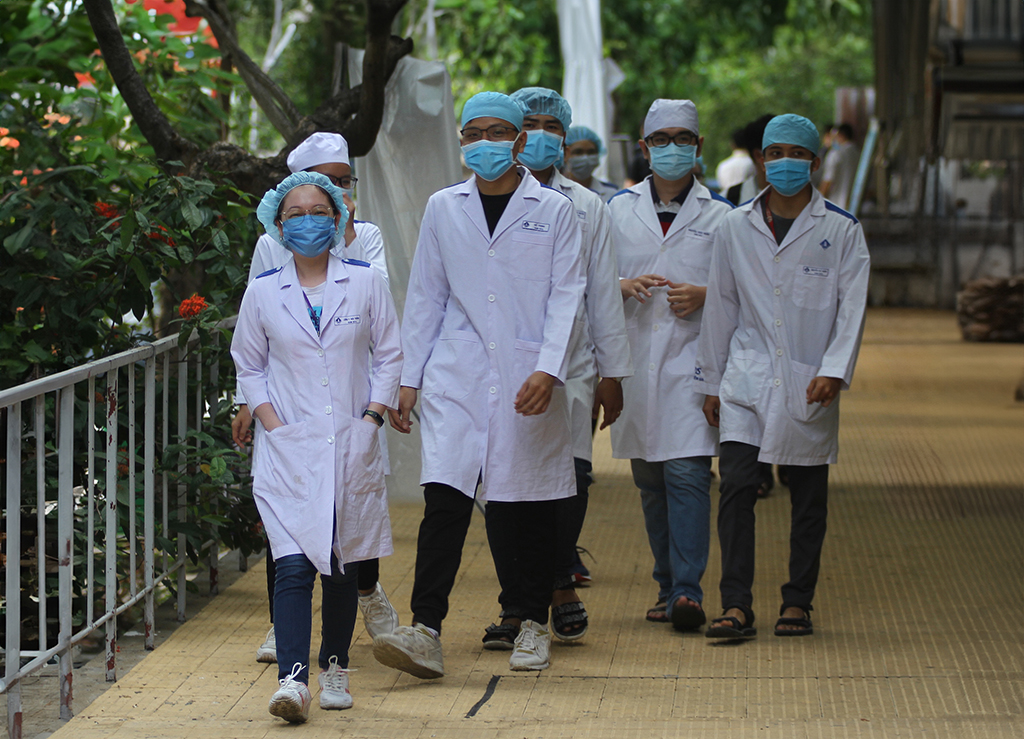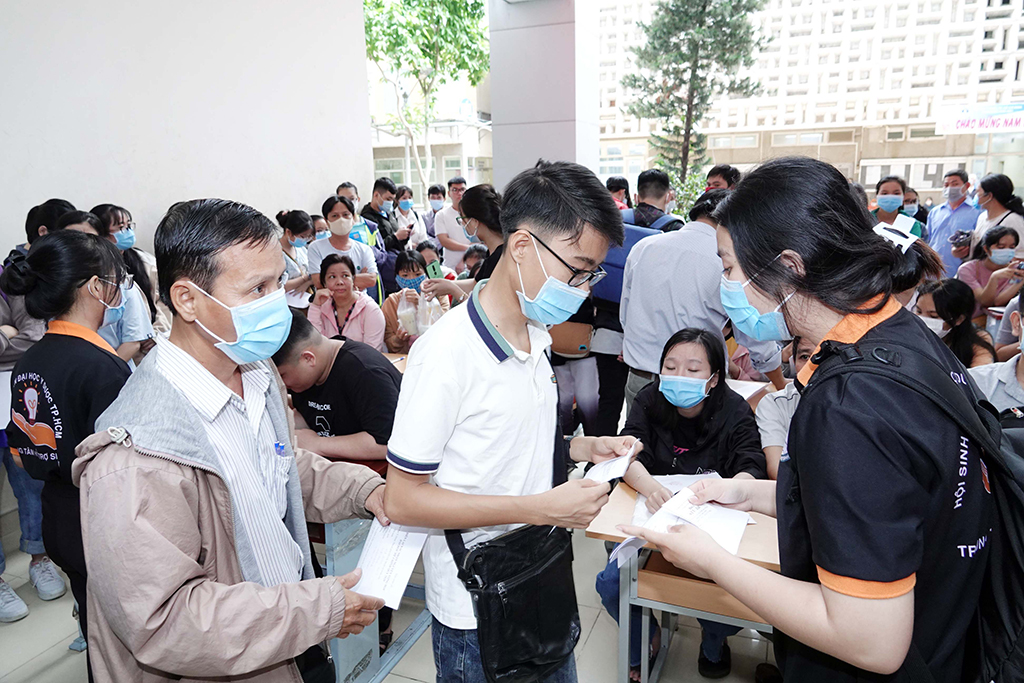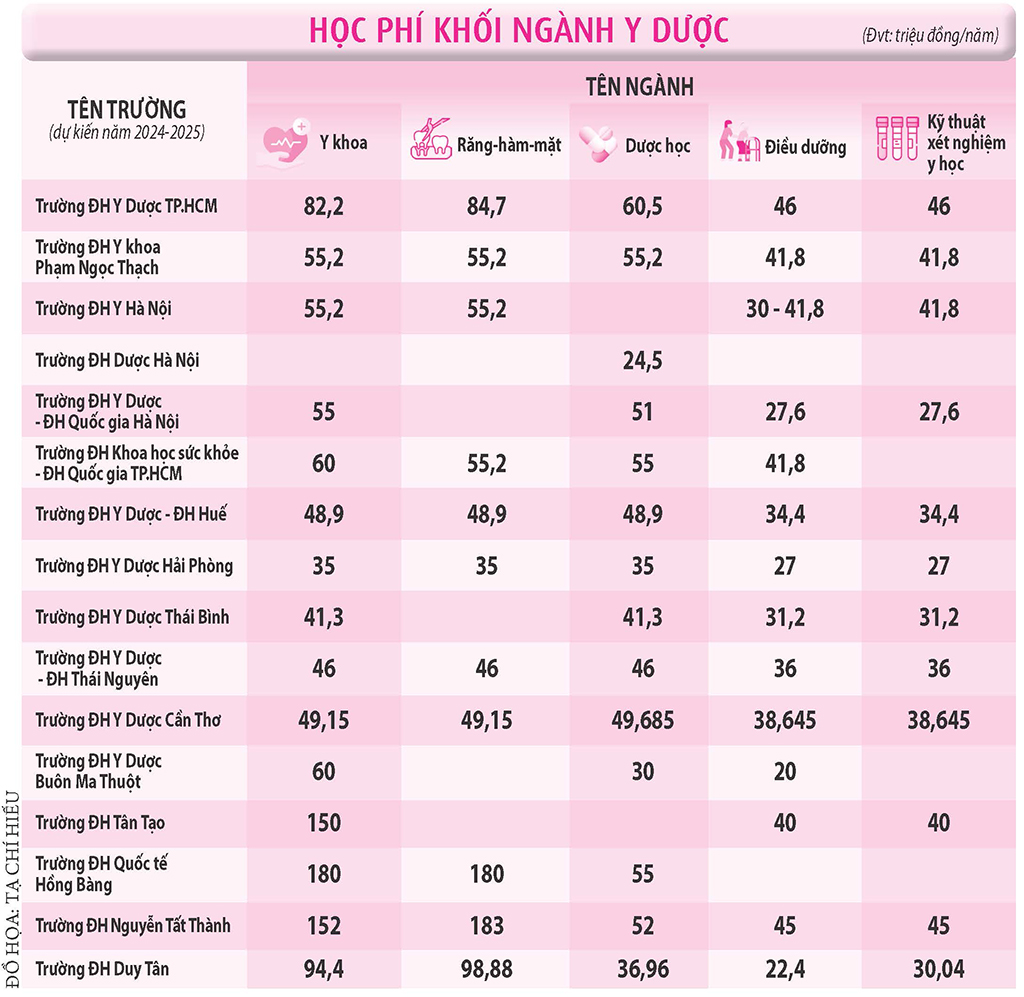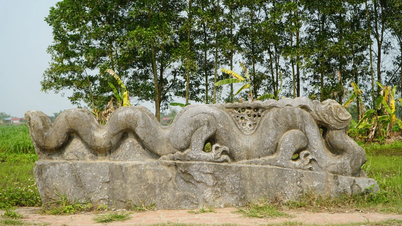Meanwhile, ironically, tuition fees for health science programs, especially medicine, are currently very high, reaching nearly 200 million VND per year in some places.
Medical tuition fees are sky-high.
It can be said that tuition fees in the medical field have never been as high as they are now, especially in general medicine (training general practitioners) and dentistry (training dentists). Tuition fees at public universities are currently regulated by Government Decree 97, which amends and supplements several articles of Decree 81/2021, stipulating the mechanism for collecting and managing tuition fees for educational institutions within the national education system and policies on tuition fee exemptions and reductions, support for learning costs, and service prices in the field of education and training.
According to the tuition fee schedule for the 2024-2025 academic year, non-autonomous universities can collect a maximum of 27.6 million VND/year (10 months); universities that cover their operating expenses can collect a maximum of 55.2 million VND/year; and universities that are autonomous in both operating and investment expenses can collect up to 69 million VND/year. Furthermore, for programs that have achieved quality accreditation, universities can determine their own tuition fees based on economic and technical standards issued by the university. Therefore, tuition fees for medical training programs at public universities vary widely.

Medical students study hard, pay high tuition fees, face immense job pressure after graduation, but their income is not commensurate with their efforts.
It can be said that medicine is one of the fields with the highest tuition fees currently. Among public universities training in health sciences, the University of Medicine and Pharmacy of Ho Chi Minh City has the highest tuition fees, with two doctor training programs exceeding 80 million VND per year. Meanwhile, the University of Medicine and Pharmacy (Thai Nguyen University) has tuition fees of over 30 million VND per year.
At private universities, the highest tuition fee for medical programs is at Hong Bang International University, at 180 million VND per year. This is followed by Tan Tao University and Nguyen Tat Thanh University, both at 150 million VND per year.
Compared to 10 years ago, the highest tuition fee in the medical and pharmaceutical fields has increased more than tenfold. The maximum tuition fee for the medical and pharmaceutical fields in the 2014-2015 academic year was only 800,000 VND/month (equivalent to 8 million VND/10-month academic year).
Studying and working hard, but not earning enough to live on.
Not only are tuition fees high, but medical students also have to go through a rigorous and lengthy study process. However, the current income of young doctors in public healthcare facilities does not match the investment made by students.
Nguyen Thu Phuong graduated from the Medical Faculty of Ho Chi Minh City University of Medicine and Pharmacy in 2022 and was subsequently hired to work at a hospital in Thu Duc City (Ho Chi Minh City). Initially, Phuong underwent a two-month training period with a monthly allowance of 1.5 million VND. After the two-month probationary period, she received 85% of her basic salary (coefficient 2.34), which was nearly 3 million VND. Upon completion of this period, she received her full basic salary of 3.5 million VND per month.
With such a low income, Phuong couldn't afford the high cost of living in the city. At this time, because Phuong didn't have a professional license, she couldn't take on additional work at clinics to earn more income.
After completing a 12-month course to obtain her medical license, Phuong worked in Thu Duc City and spent her weekends driving to a hospital in Long An to work extra shifts. She didn't take a single day off all week and had to work late nights constantly. "Many times, on the way from Ho Chi Minh City to Long An, I had to pull over and sleep for a while to regain my strength for work," the young doctor recounted.

Admitted students complete the enrollment procedures at the Ho Chi Minh City University of Medicine and Pharmacy. Currently, the health sector is among the fields with the highest tuition fees.
PHOTO: DAO NGOC THACH
Phuong's current income, including salary, allowances, and night shift pay at her main hospital, is about 8 million VND per month, while her part-time job at another hospital adds up to 4 million VND per month. "Working without days off and under so much pressure, it's only barely enough to cover my living expenses in Ho Chi Minh City. Sometimes I feel so disheartened. I think about how I studied for 6 years and need another year to get my certificate; the learning process was much longer and more difficult than my friends', and now I'm working much harder, yet my friends earn two or three times more than me. Then I have to comfort myself by thinking that I've only just graduated, I need to accumulate more expertise and experience, and when I become a good doctor, my income will be better, but that process will surely be very long," Phuong confided.
NTK (a young doctor working in Ho Chi Minh City) said that his current income from the hospital is over 10 million VND per month. This includes a base salary of approximately 8 million VND and other income from: surgery (3.8 million VND/month); procedures (2 million VND/month); on-call duty (nearly 680,000 VND/month)...
HB (a doctor working at a private clinic) shared: "The average income is about 900,000 to 1.5 million VND per day, and I only work a maximum of 2 days a week. Therefore, the average income is about 4-6 million VND per month."
HB observed: "A doctor only starts earning an income after 1-3 years of practice following medical school. The average income is usually below 6-8 million VND/month, but with hard overtime work, it can reach 12-15 million VND/month, not including the costs of regular training and education that month. This amount is low, not commensurate with the effort put into work and study, and not enough to cover daily living expenses, let alone provide for children."
A.D (a young doctor at a hospital in District 3, Ho Chi Minh City) also acknowledged: "Within 5-10 years after graduation, the income cannot yet equal the amount invested in education."
MASSIVE RESIGNATION BY DOCTORS AND PUBLIC HEALTHCARE STAFF
The direct consequence of low income and high work pressure is the mass resignation of doctors and public health workers in recent times. Most recently, medical staff at the specialized departments of the Thuan An City Health Center (Binh Duong province) submitted resignation letters. Prior to that, in the first seven months of 2022, 166 doctors and public health workers in the province resigned. According to a report from the Binh Duong Department of Health, the reasons for this resignation are low salaries and benefits, a stressful work environment, arduous work, and continuous exposure to hazardous factors. In addition, other reasons include family circumstances, further education, and other career choices.
Nghe An province also recorded 119 doctors and medical staff at public hospitals resigning between the beginning of 2021 and July 2022. Nearly half of them were doctors, and two-thirds of those who resigned moved to work at private hospitals. At that time, according to the Nghe An Department of Health, a newly graduated doctor working at a public hospital earned only 5-7 million VND/month, but private hospitals were willing to pay 15-20 million VND/month. A newly graduated resident doctor at the Nghe An Provincial General Hospital received a maximum salary of only 15 million VND/month, but private hospitals could offer 70-100 million VND/month.

Dr. Truong Huu Khanh, an epidemiologist and former Head of the Infectious Diseases and Neurology Department at Children's Hospital 1 (Ho Chi Minh City), believes that healthcare workers in the public sector currently face significant pressure, stemming from inadequate income and responsibilities outside their specialized field. Those who choose to remain in the public sector do so either to contribute to the community or to provide an environment for professional development and learning. The more skilled a person is, the more options they have; if talented individuals leave the public sector, ultimately, poor patients will be the ones who suffer.
"Speaking about income in public hospitals, it can be said that it is not commensurate with the effort they put in, let alone compared to other professions. Therefore, it can be said that the first 10 years after graduation are the 'easiest' period for medical staff due to limited income while having to do many tasks," Dr. Khanh commented.
Source: https://thanhnien.vn/dao-tao-bac-si-nghich-ly-hoc-phi-va-luong-18524102323030931.htm




![[Photo] Walking amidst the coffee blossoms in the Central Highlands](https://vphoto.vietnam.vn/thumb/1200x675/vietnam/resource/IMAGE/2026/02/22/1771736214034_ndo_bl_img-3460-8365-jpg.webp)













































































































Comment (0)